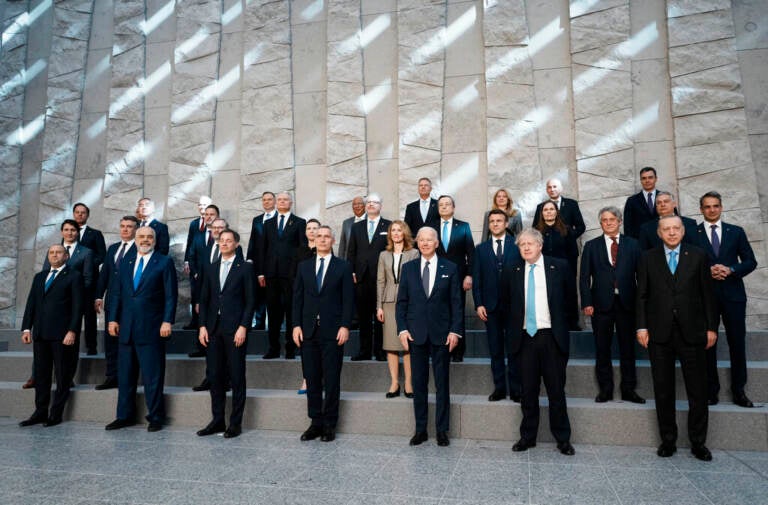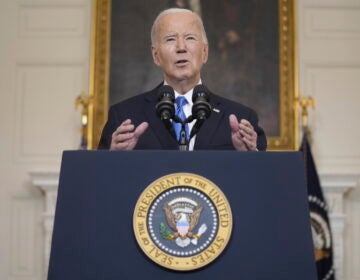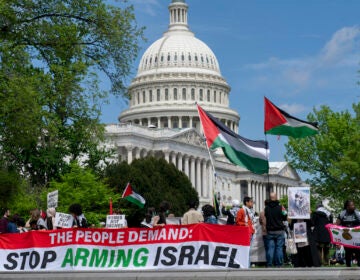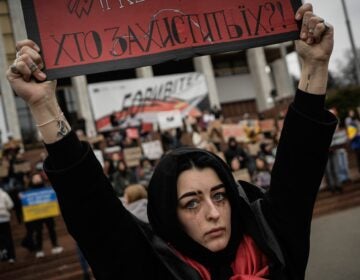How will the war in Ukraine end?
What came out of the emergency NATO and G7 meetings in Brussels? What options remain for the US and Europe in aiding Ukraine and providing an offramp for Putin?
Listen 49:00
NATO heads of state pose for a group photo during an extraordinary NATO summit at NATO headquarters in Brussels, Thursday, March 24, 2022. As the war in Ukraine grinds into a second month, President Joe Biden and Western allies are gathering to chart a path to ramp up pressure on Russian President Vladimir Putin while tending to the economic and security fallout that's spreading across Europe and the world. (AP Photo/Thibault Camus)
NATO allies, EU leaders and G7 representatives met in Brussels on Thursday for emergency summits on Russia’s war with Ukraine. Nations agreed on more sanctions against Russia, and more military aid to Ukraine, increasing NATO presence in some Eastern European countries and humanitarian help. Biden announced that the United States will accept 100,000 Ukrainian refugees. At the post-NATO meeting press conference, President Biden explained that Putin was “banking on NATO being divided,” but the alliances are stronger than ever.
This hour, we’ll discuss the meetings in Brussels, where the war stands, and if there is anyway to constrain Putin. And we’ll talk about the difficult choices that lie ahead, including how NATO would respond if Putin uses chemical or nuclear weapons.
Guests
Rep. Brian Fitzpatrick, a U.S. Republican Representative serving Pennsylvania’s 1st district. He co-chairs the Congressional Ukraine Caucus, recently visited the Ukraine border and spent time in Ukraine when he was an FBI agent. @Repbrianfitz
Michael Kimmage, professor at Catholic University and fellow at the German Marshall Fund. He is a former State Department policy planner who held the US-Russia portfolio. @mkimmage
Andrea Kendall-Taylor, director of the Transatlantic Security Program at the Center for a New American Security and a former senior intelligence officer. @akendalltaylor
Read more
The Washington Post, Leaders add sanctions on Russia, warn against chemical weapons – Biden also announced that the U.S. would take in up to 100,000 refugees from Ukraine, while also calling for Moscow to be expelled from the G-20.
Bucks County Courier Times, Fitzpatrick faults ‘risks of inaction’ at BCCC forum on Ukraine –Congressman Brian Fitzpatrick called for more American and European action to help the besieged Ukrainians protect their homeland before it becomes too little too late.
Foreign Affairs, What If Russia Makes a Deal? – How to End a War That No One Is Likely to Win
Foreign Policy, Why Putin Probably Won’t Give Up Anytime Soon – History—and Putin’s penchant for risk—suggest he’s likely to dig in his heels.
WHYY is your source for fact-based, in-depth journalism and information. As a nonprofit organization, we rely on financial support from readers like you. Please give today.





